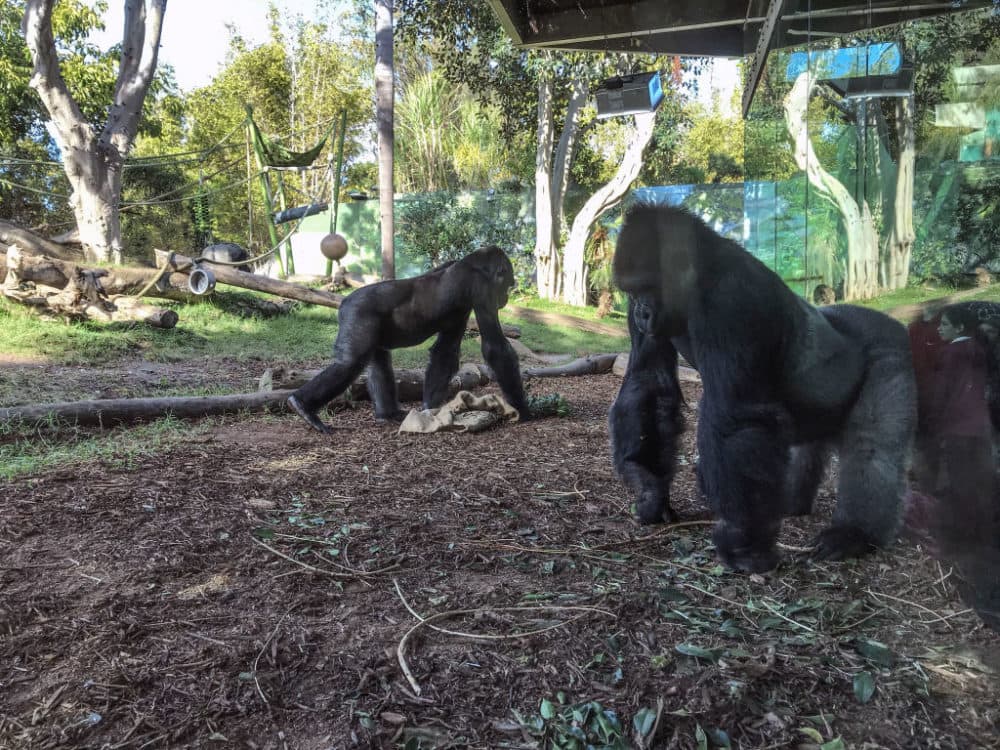Advertisement
2 Gorillas At San Diego Zoo Test Positive For COVID-19
Resume
At least two gorillas at the San Diego Zoo Safari Park in California have tested positive for the coronavirus with others showing symptoms.
This is the first-known natural spread of COVID-19 to great apes.
The gorillas are faring well in part because of their resilience, executive director Lisa Peterson says. The infected apes’ subtle behavior changes are likely due to lethargy, rendering them a bit more inactive than usual. Their dismal energy is accompanied by a cough and runny nose, she says. However, they are eating and drinking their prepared diets.
The park closed its doors to the public in early December to curb the spread of the virus. Employees’ uniforms are kept separate from regular clothes, she says. Staff wears masks and gloves and shower before they leave the zoo.
Despite strong safety precautions, Peterson believes the gorillas caught the virus from an asymptomatic employee.
As soon as an employee tested positive, zoo personnel began closely watching the gorillas. Once the apes’ tests came back with the bad news, the zoo implemented eye coverings and disposable Tyvek-type suits for all staff members, she says.
With all these measures taken, the virus was still able to jump from humans to the animals.
“Yes, it is concerning that this happened, but I don't think it's unlike what we're seeing across the nation,” she says. “Certainly here in California, we're still really struggling with the illness and getting it into a more manageable place.”
The zoo is monitoring the health of the other apes in the troop. Safety protocols will continue to be updated “to ensure that we are doing the utmost we can to protect [the gorillas] and to also protect our team,” she says. “My responsibility is to look after both.”
Humans share 98% of their DNA with gorillas. Peterson says while she is not a veterinarian, she does think apes’ risk is comparable to humans. But right now, “we are not seeing it as bad as maybe it could be if you compared it to a human being” in terms of the severity of illness, she says.
There have been other cases of tigers and lions getting sick with COVID-19. The virus’ ability to move between species is considered a public safety issue and serves as a reminder of how crucial ecology conservation is, Peterson argues.
“By protecting animals, places and plants, we are, in fact, protecting ourselves,” she says.
If presented with the opportunity, Peterson says she would like for the gorillas to be vaccinated against the coronavirus. But given the COVID-19 surge across the country and the human demand for the vaccine, she doesn’t think it will happen anytime soon.
“I would say we need to focus on the human population and getting our human folks to get vaccinated first and really make sure that we get this under control in our communities,” she says. “That's really the best way to help everyone.”
This segment aired on January 13, 2021.

